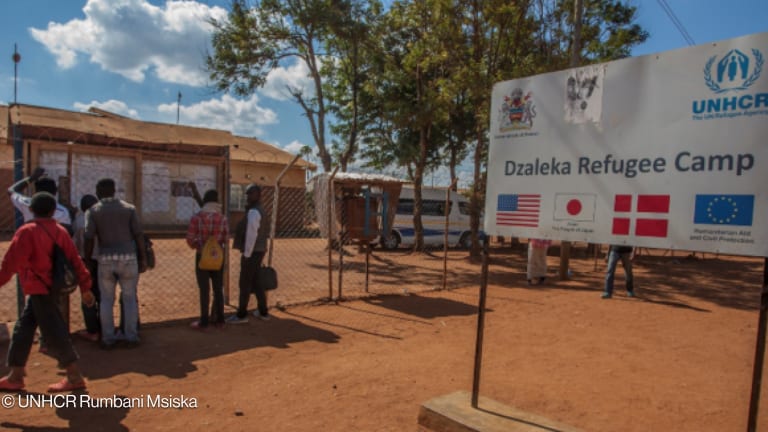
Eight years ago, Beatrice Mlatho, the councilor for Chikuli ward in Mulanje district, southern Malawi found it challenging to advocate for fair participation of women in the development of her area.
As one of the three women councilors in the 18-member district assembly, Mlatho said the dominance of male members in development committees made it difficult to advance a gender-responsive agenda, and women were usually left out in the development discourse.
"Development discussions were dominated by men … and the result was that the achieved development did not meet the needs of other people such as girls and women," she said.
However, Mlatho said the situation is now changing following the gender-responsive budgeting project — an ongoing project that the government of Malawi — with support from the European Union, UN Women, and other local NGOs — has been implementing since 2015.
“Currently there is equitable distribution of resources and this has created equal opportunities as witnessed by the number of girls that are completing their education in districts that had high rates of child marriages,” Mlatho said.
Under the project, local councils are guided to implement budgets and interventions that address the needs of both men and women, in order to reduce the development gender gap in the country.
The guidelines were recently validated and now form part of the budget bylaws for district assemblies. Following the validation, the National Local Government Finance Committee and local assemblies are expediting the processes of operationalization of the guidelines so that development projects in local assemblies are in line with the Malawi 2063 development agenda — which aims to build an inclusively wealthy and self-reliant nation.
The 2019 Human Development Report found that gender disparities remain among the most persistent forms of inequality and gender inequality is arguably one of the greatest barriers to human development. The gender-responsive budgeting guidelines will assist in promoting inclusive development, said Hadrod Mkandawire, executive director for Malawi Local Government Association — which is responsible for the implementation of the program.
"We can't be talking about development if some quarters of the society are left behind in the process. We need to have all members of the society coming together working for the social-economic development of the country," Mkandawire said.
He said district assemblies that had started implementing the guidelines had already started benefiting from the project through training offered to council members on how they can come up with gender-responsive budgets.
Faith Mvula, communications for development officer at UN Women in Malawi, said the project has capacitated local councils to demand accountability on how allocated financial resources are used, and they are able to track whether the resources are being put to the intended use.
"Where inadequate resources have been allocated at the planning level, knowledge of Gender Responsive Budgeting has capacitated the beneficiaries at the local level to lobby for increased funding," Mvula said.
But one of the challenges in implementation has been an understanding of the concept of gender-responsive budgeting, or GRB, itself, Mvula said. Adding that this could somehow affect the outcomes of the project as other sections of society would feel that they are sidelining men in the development discourse.
“There are misconceptions, such as thinking that GRB advocates for a separate budgets for women which is wrong; as GRB simply advocates for gender-equitable distribution of resources so as to contribute to equal opportunities for all," she said.
Mvula said these misconceptions are being overcome with knowledge sharing and capacity-building initiatives so that there is a shared understanding of what GRB really entails.
Emma Kaliya, a Malawian human rights and gender and women rights activist believes Malawi is making strides in the promotion of women's participation in socioeconomic development because it has adopted a GRB strategy.
Kaliya said one of the outcomes of GRB has been an increase in women that have been elected to decision-making positions at both council and legislative levels.
The number of women elected in the national assembly rose from 16% in 2014 to 23% in 2019 while at the local assemblies the number rose from 11% in 2014 to 13%.
Senior Chief Theresa Kachindamoto of Dedza district in central Malawi who made international headlines after abolishing 850 child marriages in her area said the GRB has not only promoted the participation of women but has also assisted to bridge the gap between men and women.
"They incorporate the needs of all community members,” she said. Adding that this has resulted in a drop in child marriages in her area.






